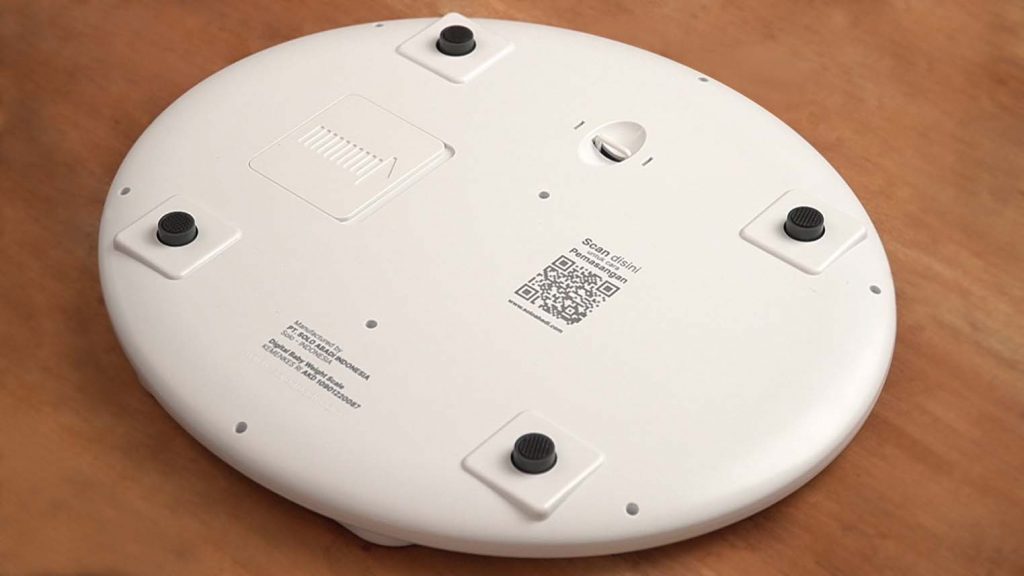Fluctuations in the numbers on the scales are quite common. This becomes commonplace when you take measurements using analog or conventional scales which are most likely to be inaccurate. However, since the use of analog scales is not recommended, this problem can still be found in digital scales. Including, many Public Health Services complain about changing digital baby scales. Then, why do digital scale fluctuates ? Here’s why!
1. Uncalibrated Scale

One of the most common reasons for digital scale numbers to fluctuate is on a scale that is not consistently calibrated. Over time, the quantity of use can cause wear and tear on digital scales, as a result, digital scale numbers change until they lose their accuracy.
Calibration is resetting the accuracy of measuring instruments by comparing them with applicable standards. This process is usually done regularly, depending on the intensity of its use. Normally, calibration can be done every 6-12 months. For digital baby scales that are used interchangeably at Public Health Services, intensive calibration is required. This is because one digital baby scale can be used for up to hundreds of babies at a time. To avoid inaccurate numbers, baby scales need to go through a calibration process.
2. Placing Scales on an Uneven Place

If the numbers on the digital scale change, it could be that you are placing the scales incorrectly on an uneven surface. This is because digital scales use sensors located at each end of the bottom of the scale or what is often referred to as the Loadcell Shear Beam.
This is because digital scales are designed to measure downward pressure. If you place the scales on an uneven surface, there may be loads that are no longer parallel to the direction of gravity (downward) and are not measurable. So that the numbers on the scales change and the scales are no longer accurate.
Read More : 3 Most Common Reasons Your Digital Scale is Inaccurate!
3. Weight Imbalance
An imbalance of weight placed on the scales can cause the numbers on the digital scales to change. In object scales, this can happen because the weight on one side of the scale is compared to the other side. In humans, this can happen if you don’t maximize the available footprint on digital scales.
However, if this happens to baby scales that have a high level of sensor accuracy, this is likely due to additional movement of the baby. On digital baby scales, this can be circumvented with the hold button. The ‘hold’ button on digital baby scales can show accurate and unchanging numbers.
4. Additional Movement on The Floor
As already explained, digital scales are not recommended for use on carpets or mats because of the location of the sensors attached to each corner of the scale. Therefore, it is important for us to take weight measurements on a solid floor without any additional items.
The reason is, different digital weighing scales and digital baby scales have different levels of accuracy. Digital Scales has an accuracy level of 100 grams, while baby scales have an accuracy level of 5 grams. Both require different ‘treatment’ in their use.
Digital Scales that are placed on the floor will function well with a solid base and without the addition of other items. Likewise with Baby Scales, choose a table that is flat and sturdy enough. The most important tip in weighing a baby is not to put anything on the table and add any movement. Due to the fact that digital baby scales have a very high level of accuracy, so any additional movement can affect the quality of the data produced.
Digital Weight Scale With High Level of Accuracy
Digital Scales is a tool that is very easy to find, even in the online marketplace at a very affordable price. However, it does not guarantee the quality of the data. The reason is, it determines the quality of the components and sensors used.
Digital Scales from METRISIS is a solution to inaccurate digital scales. By prioritizing quality that is in accordance with the Blueprint of the Ministry of Health of the Republic of Indonesia, by having an accuracy of up to 100 grams for digital scales and 5 grams for digital baby scales. Both have gone through various certification processes to improve data quality such as calibration tests and the Domestic Component Level (TKDN).
METRISIS Digital Weight Scale
The specification of METRISIS Digital Weight Scale
- Dimension : 302 X 302 X 22 Mm
- Weigh : 1,8 Kg
- Capacity : 150 Kg
- Accuration : 100 Gram
- Technology : 4 Strain Gaguge Sensors
- Thickness : 6 Mm
- Material : Tempered Glass
- Display : LED/ Digital Display
- LED Dim : 34,1 Mm
- Fitures : Auto On/Off
- Indicator : Low Battery / Error
Digital Baby Weight Scale
METRISIS Digital Baby Scales are manufactured by PT Solo Abadi Indonesia, the largest medical device manufacturer in Indonesia. Solo Abadi is trusted by hundreds of domestic and foreign government institutions in providing Anthropometry tools. Various recognitions have come from various parties, including the MINISTRY OF HEALTH. The reason is that the specifications presented by Solo Abadi are said to be export worthy, are domestically made products and meet the specifications expected by the Ministry of Health.
The Specification of METRISIS Digital Baby Weight Scale
- TKDN Certification of 41,04%
- Dimension : 700 X 320 X 88 Mm
- Weight : 2kgs
- Capacity : 20 kg
- Accuracy : 5gr
- LCD Size : 75 X 30 Mm
- Power Source : 4×1,5v AAA
- Material : ABS Plastic
- Display Type : LCD/Digital Display
- Button : On/Off
- Indicator : Error/Overload
Get Your Digital Weight Scale Now!
Solo Abadi Indonesia is committed to continuing to contribute to the efforts of the Government of Indonesia in strengthening domestic production of Medical Devices. We present it with quality that meets the standards of the Ministry of Health. We also partner with various government agencies and private parties as a form of our contribution.
For more information you can get through our admin via WhatsApp. Follow updates on the Solo Abadi website, www.soloabadi.com for info on stunting. You can also get METRISIS Digital Baby Scales in the E-CATALOG.


